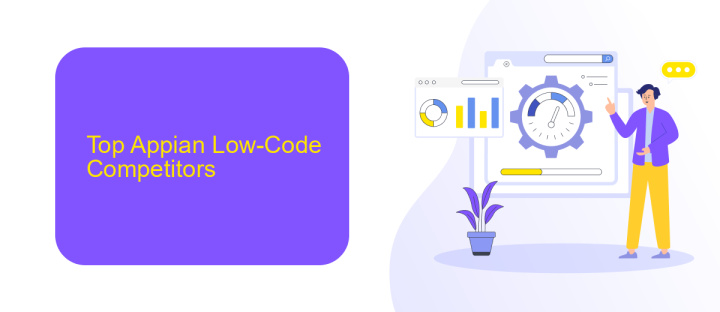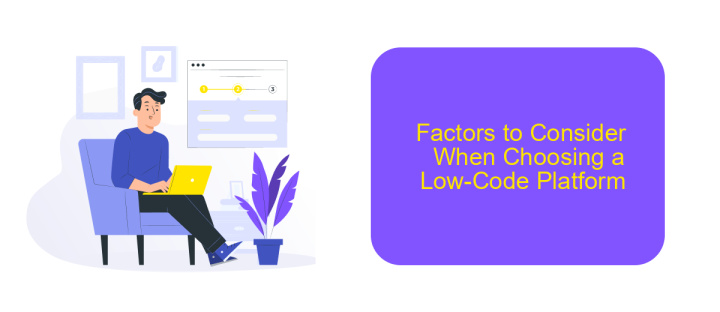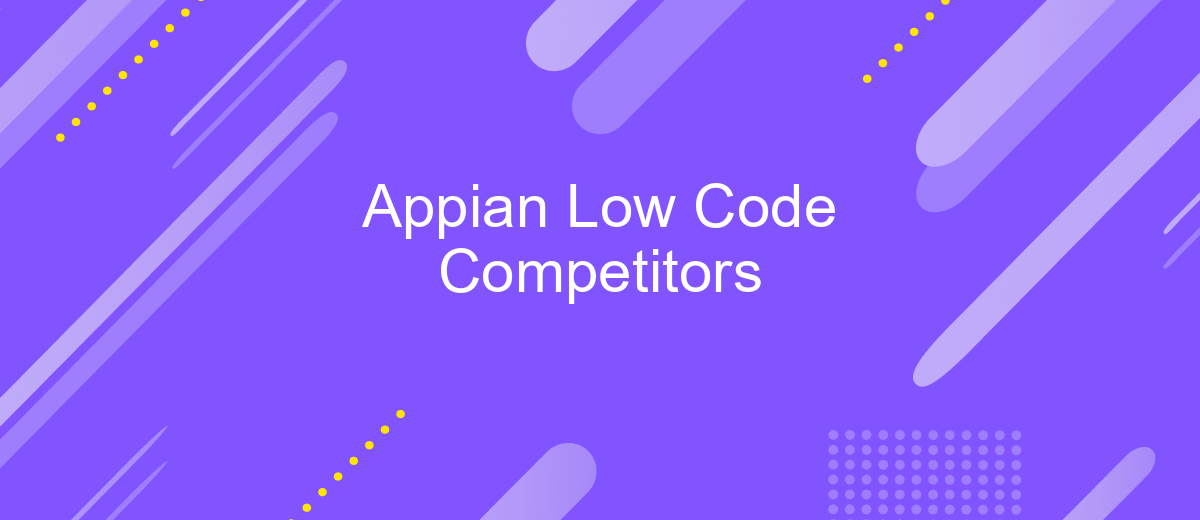Appian Low Code Competitors
In the rapidly evolving landscape of software development, low-code platforms like Appian are gaining significant traction for their ability to accelerate application delivery. However, Appian is not alone in this space. This article explores the top competitors in the low-code market, examining their unique features, strengths, and how they stack up against Appian in driving digital transformation.
Introduction
As businesses increasingly seek to streamline their operations and reduce development time, low-code platforms have gained substantial attention. Among these, Appian stands out as a robust solution for rapid application development. However, the market is teeming with competitors, each offering unique features and capabilities that cater to various business needs.
- Ease of Use: Many low-code platforms prioritize user-friendly interfaces to enable even non-technical users to create applications.
- Integration Capabilities: Competitors often offer extensive integration options with existing systems and third-party services, such as ApiX-Drive, to facilitate seamless data flow.
- Customization: While low-code platforms aim to simplify development, the level of customization available can vary significantly between different solutions.
Understanding the strengths and weaknesses of Appian's competitors can help businesses make informed decisions when selecting a low-code platform. Whether it's the ease of use, integration capabilities, or customization options, evaluating these factors is crucial for aligning the platform with specific organizational needs.
Top Appian Low-Code Competitors

In the rapidly evolving landscape of low-code platforms, several competitors stand out as strong alternatives to Appian. Mendix, for instance, offers a comprehensive suite of tools that enable rapid application development with minimal coding. Its robust community and extensive marketplace provide developers with a wealth of resources to streamline their projects. Similarly, OutSystems is renowned for its high-performance capabilities and scalability, making it a preferred choice for enterprises looking to deploy complex applications quickly.
Another notable competitor is ApiX-Drive, which excels in its ability to simplify integrations between various services. This platform empowers users to connect their applications seamlessly, enhancing workflow automation without the need for extensive coding knowledge. Additionally, Microsoft PowerApps provides a user-friendly interface and strong integration with other Microsoft services, making it an attractive option for businesses already invested in the Microsoft ecosystem. Each of these platforms brings unique strengths to the table, offering viable alternatives for organizations seeking efficient low-code development solutions.
Comparison of Appian and Its Competitors

Appian is a prominent player in the low-code development platform market, but it faces stiff competition from other notable platforms. Understanding the strengths and weaknesses of Appian in comparison to its competitors can help businesses make informed decisions.
- Mendix: Mendix offers a robust environment for rapid application development with a strong focus on collaboration and ease of use. It provides extensive integration capabilities through its open APIs.
- OutSystems: Known for its scalability and performance, OutSystems excels in enterprise-grade applications. It also features a wide array of pre-built templates and components.
- ApiX-Drive: While not a direct competitor, ApiX-Drive complements low-code platforms like Appian by offering seamless integration services, helping to connect various applications and automate workflows efficiently.
- Microsoft PowerApps: This platform is tightly integrated with the Microsoft ecosystem, making it an attractive choice for businesses already using Microsoft products. Its user-friendly interface is ideal for citizen developers.
Each of these platforms has its unique advantages, making them suitable for different business needs. Appian stands out with its strong focus on business process management and comprehensive integration options, but companies should evaluate their specific requirements to choose the best platform. ApiX-Drive can enhance these platforms by providing additional integration solutions, ensuring smooth and efficient workflows.
Factors to Consider When Choosing a Low-Code Platform

When selecting a low-code platform, it's crucial to evaluate several factors to ensure that it meets your organization's needs. The right platform can significantly enhance productivity and streamline processes, but the wrong choice could lead to inefficiencies and added costs.
One of the primary considerations is the platform's ease of use. A user-friendly interface can empower non-technical team members to contribute to application development, reducing the burden on IT departments. Additionally, you should assess the platform's scalability to accommodate future growth and evolving business requirements.
- Integration capabilities: Ensure the platform can seamlessly integrate with your existing systems and third-party applications. Services like ApiX-Drive can facilitate these integrations.
- Customization options: The platform should offer flexible customization to tailor applications to your specific needs.
- Security features: Robust security measures are essential to protect sensitive data and comply with regulatory requirements.
- Support and community: Access to reliable customer support and an active user community can be invaluable resources.
Finally, consider the total cost of ownership, including licensing fees, implementation costs, and ongoing maintenance. By thoroughly evaluating these factors, you can select a low-code platform that aligns with your business objectives and enhances operational efficiency.
Conclusion
In conclusion, the landscape of low-code platforms is rapidly evolving, with numerous competitors emerging to challenge Appian's market position. Each competitor brings unique strengths and weaknesses, catering to different business needs and technical requirements. While some platforms excel in user-friendly interfaces and rapid deployment, others offer robust customization and integration capabilities.
For businesses seeking seamless integration with various applications, services like ApiX-Drive provide valuable solutions. ApiX-Drive enables effortless integration between different systems, enhancing the overall efficiency and functionality of low-code platforms. As organizations continue to prioritize agility and innovation, choosing the right low-code platform and complementary integration services will be crucial for staying competitive in the digital age.


FAQ
What are the main competitors of Appian in the low-code platform market?
How does Appian compare to its competitors in terms of ease of use?
Can Appian integrate with other software and services?
What are the key features that differentiate Appian from its competitors?
Is Appian suitable for small businesses or just large enterprises?
Apix-Drive is a simple and efficient system connector that will help you automate routine tasks and optimize business processes. You can save time and money, direct these resources to more important purposes. Test ApiX-Drive and make sure that this tool will relieve your employees and after 5 minutes of settings your business will start working faster.

